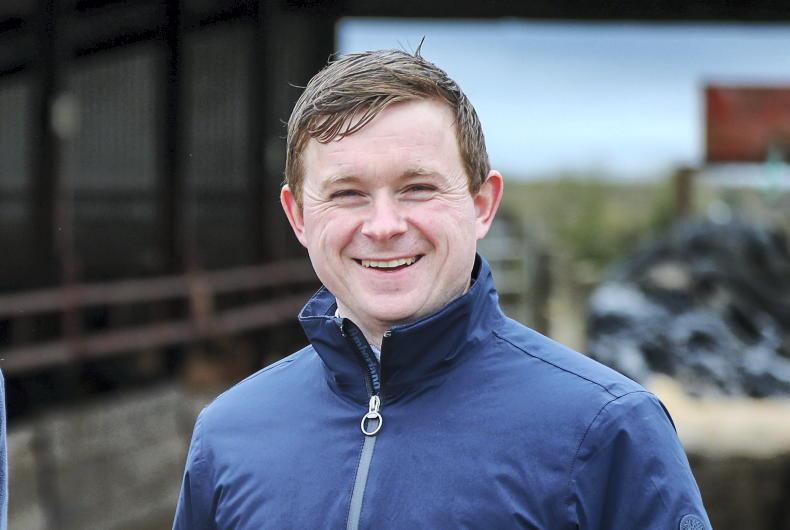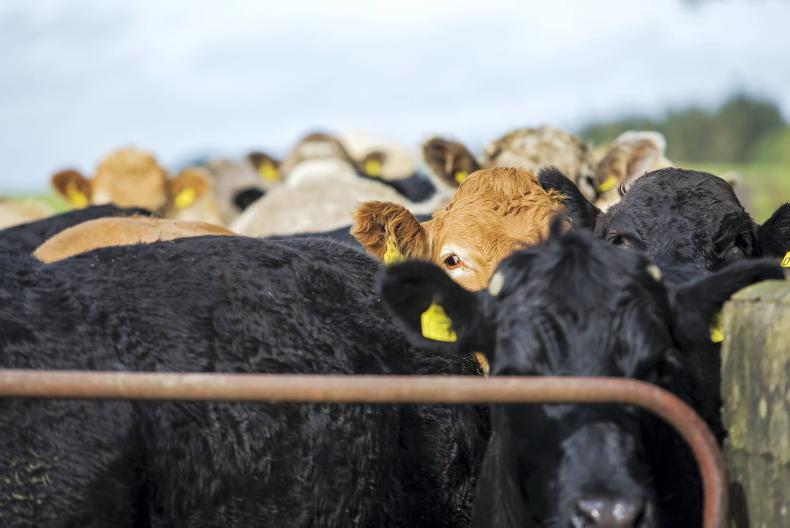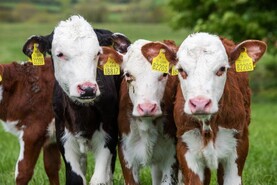Feed additives to cut emissions from cattle are still a few years out from having a “real impact”, according to ABP.
The processor’s sustainability manager Stephen Connolly noted that while progress has been made in developing methane-cutting additives, a solution for the beef sector isn’t available yet.
Connolly instead suggested that the beef sector needs to “try and implement some of the readily available technologies that we have currently – the genetics – and get that right”.
Dairy beef systems
ABP has found that dairy calves reared to beef which are sired by five-star terminal index Angus bulls have 13% lower emissions across their lifetime, said Connolly.
On its 420-calf dairy beef demonstration farm in Co Carlow, ABP also found that when compared with calves sired by one-star Angus bulls, the five-star calves had a carcase which was 46kg heavier, adding €202 in value.

ABP sustainability manager Stephen Connolly.
The ABP sustainability manager said that across a 100-calf system, such a price gap is worth €20,200 to a farmer.
The analysis was conducted on calves bought and slaughtered at the same ages with heifers finished at 19 months and steers at 21 months.
“It clearly shows environmental and economic sustainability can go hand in hand,” he said.
Read more
ICBF publishes world-first methane data for breeding bulls
Feed and slurry additives could reduce farm emissions by 25%
Feed additives to cut emissions from cattle are still a few years out from having a “real impact”, according to ABP.
The processor’s sustainability manager Stephen Connolly noted that while progress has been made in developing methane-cutting additives, a solution for the beef sector isn’t available yet.
Connolly instead suggested that the beef sector needs to “try and implement some of the readily available technologies that we have currently – the genetics – and get that right”.
Dairy beef systems
ABP has found that dairy calves reared to beef which are sired by five-star terminal index Angus bulls have 13% lower emissions across their lifetime, said Connolly.
On its 420-calf dairy beef demonstration farm in Co Carlow, ABP also found that when compared with calves sired by one-star Angus bulls, the five-star calves had a carcase which was 46kg heavier, adding €202 in value.

ABP sustainability manager Stephen Connolly.
The ABP sustainability manager said that across a 100-calf system, such a price gap is worth €20,200 to a farmer.
The analysis was conducted on calves bought and slaughtered at the same ages with heifers finished at 19 months and steers at 21 months.
“It clearly shows environmental and economic sustainability can go hand in hand,” he said.
Read more
ICBF publishes world-first methane data for breeding bulls
Feed and slurry additives could reduce farm emissions by 25%







 This is a subscriber-only article
This is a subscriber-only article










SHARING OPTIONS: